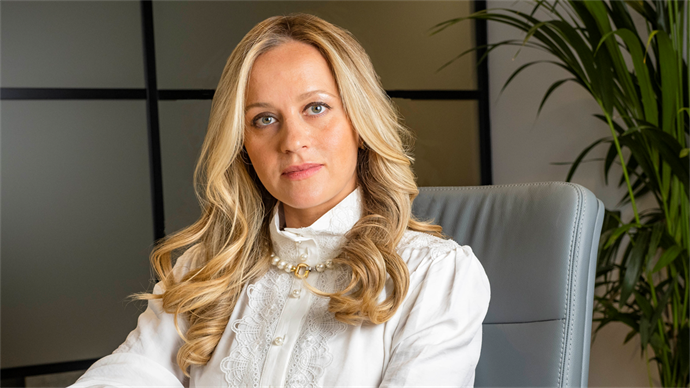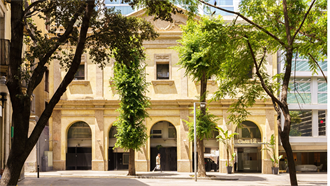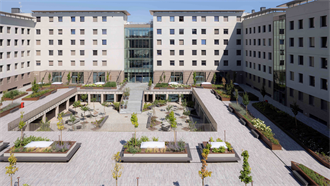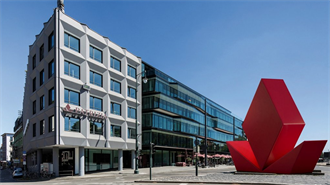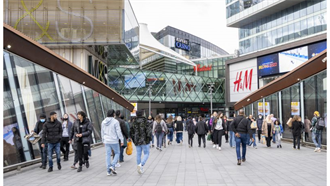While the logistics industry may have exploited the upsides of the pandemic to steam ahead, will war in Ukraine and rampant inflation finally slow the juggernaut of growth? Mirastar CEO Ekaterina Avdonina, talking to Logistics Watch from her home in London, thinks we should consider the matter from two sides.
‘The occupational story is still very positive,’ she says. ‘The supply-demand imbalance, the sheer lack of stock; markets remain significantly undersupplied, and it is occupational demand that has been underpinning the record investment volumes in the sector. ‘Ecommerce is a very resilient part of that; all retailers are moving towards the omnichannel model because it’s the only way to survive, as consumers become fully digitalised.
Without an online presence, retailers have a very bleak future. Having very robust supply chain networks is critical to their success – and that hasn’t changed. What has changed is the macroeconomic situation. Significantly higher inflation has seen swap rates increase dramatically – we’re talking daily hikes. Add to this plenty of macro uncertainty from the key banks and institutions across Europe and the US, and you have the conditions for changes in pricing. So far, this crisis is mostly affecting leveraged buyers. There are a still a lot of unleveraged buyers who fund themselves with unsecured debt, but even for them, the outlook is evolving.’
Sector specialist
Avdonina founded Mirastar, a pan-European big box specialist, in 2019, alongside Anthony Butler as chief investment officer (CIO), and originally in partnership with multi-let expert M7 Real Estate. Conceived as a developer, investor and manager of logistics assets, Mirastar launched with an exclusive mandate from Goldman Sachs and a focus on out-of-town assets.
Around a year after its creation, global investment firm KKR bought out M7’s stake in a strategic move to boost the private equity player’s exposure to European logistics and industrial. This change proved perhaps the turning point for Mirastar, giving it the capital to pivot from a focus on the Netherlands to expansion into Spain, Italy and the UK.
For Avdonina, today, it’s this latter market which is perhaps the most inspiring, as the territory’s acute supply constraints translate into significant opportunities. This despite inflation across Britain grazing 9% at time of writing.
‘I think that the UK is the number one pick for us at the moment,’ Avdonina confirms. ‘It is an island with an acute shortage of land, high urbanisation rates, and a very high population density. It also has one of the strictest planning regimes in Europe. UK policy offices are managed by councils which are really trying to protect the green belt – there’s a real reluctance to release new land for development. Accordingly, the forecast for rental growth in the UK’s south east is double that of continental Europe, so we are very strong and bullish on the market.’
UK upside
When we spoke, Mirastar had just snapped up a UK-wide logistics portfolio from TPG and Stoford worth £160 mln (€189 mln) and comprising four newly-built assets. Located in Harlow, the transaction marked Mirastar’s second deal this year on behalf of KKR’s pan-European Core+ Real Estate strategy, following the acquisition of four freehold logistics assets totalling 45,000 m² in the Netherlands in January. According to the firm, the well-situated Harlow assets are capable of being used for national distribution as well as last mile services within Greater London. KKR Capital Markets arranged debt financing for the acquisition.
There’s another factor that Avdonina mentions which sets the UK apart in this economy of many moving parts. ‘The UK also heads up the European markets in terms of pricing-in volatility, rising interest rate costs and inflation,’ she says. ‘The fact that these elements have already been factored in is testimony to its maturity.’ In comparison, she says, rents don’t move as quickly in Continental Europe, resulting in a somewhat lagging market.
Despite the UK’s superior flex, there is still much to be cautious about. Avdonina cites rising fuel costs – affecting everyone from couriers to the upstream and downstream supply chains of retailers – and the ubiquitous pain caused by spiralling energy prices. ‘Everyone is affected by the energy cost crisis,’ she notes. ‘Rising transportation costs will become an equally big concern in 6-9 months. And these factors will affect consumer spending power more than anything. We forecast that non-essential spending will fall as shoppers tighten their belts.
Yet, ‘the key concern for all our occupiers is labour,’ she underlines. ‘Both a lack of appropriately skilled workers and a general lack of worker availability.’
One bright note, even taking into account inflationary pressures on occupiers, is that Avdonina maintains there is still space for rents to rise. ‘Although the very largest warehouses are quite sensitive to overall changes in costs, rents tend to represent only 5-10% of expenses,’ she says. ‘So, the trend of doubling rents – as we have seen in some markets – is not as concerning for tenants.’ What is a growing problem is the shortage of building materials which is directly impacting both new builds and essential refurbishments. ‘A lot of developers are unable to complete projects due to key missing elements – even lacking base construction materials,’ she says. ‘Construction costs are rising daily. It’s very hard to respond to this shortage and this crisis – and it’s hard to see how this will be fixed in the short term.’
ESG plans
Reflecting a number of highly topical issues – from labour markets to construction matters – Mirastar has been honing its environmental, social and governance (ESG) strategy in recent months. ‘While ESG is embedded across our strategy, we are tackling the S with renewed vigour,’ Avdonina says. ‘Humancentric real estate is so important and we do think really hard about the user aspect when we design our buildings. The social aspect also includes employee wellness – it’s paying attention to simple things like lights, and daylight – the importance of which has been neglected for too long in warehouse design. We support local schools and the local workforce in the vicinity of our assets, with or without support from occupiers. Diversity is also a top priority within the business.’
Investment strategy
Taking into account the macroeconomic scenario and the rigidity of asset supply across Europe, does Avdonina think it will be necessary to modify her current strategy in the long term? ‘We live in interesting times and a lot has changed in the last two months,’ she acknowledges. ‘Before that, it was really a one-way street for the last five years. What I can say is the sector is not completely immune to macroeconomic shocks, despite its positive dynamics. War in Ukraine is the first time we’ve seen a conflict of this scale on the European continent for a long time.
‘Like all of our competitors, we are thinking really hard about our investment strategy, but I don’t think we are making any significant shifts at this time. We are very certain about the fundamentals of logistics, but at the same time, we are taking into account what might happen over the next 10 years. So far, we have pursued a very location-driven strategy, looking at areas that benefit from rental growth. We firmly believe that rental growth will still come.
‘Geographically, we continue to expand. We have been examining a large number of metropolitan areas across Europe, so we can understand the bigger picture. Sometimes, operating in lagging markets helps us to tweak our strategy. We will move into the Nordics – that’s the next direction of travel – and we are actively pursuing our first few deals there. The focus will be on Denmark and Sweden.’

